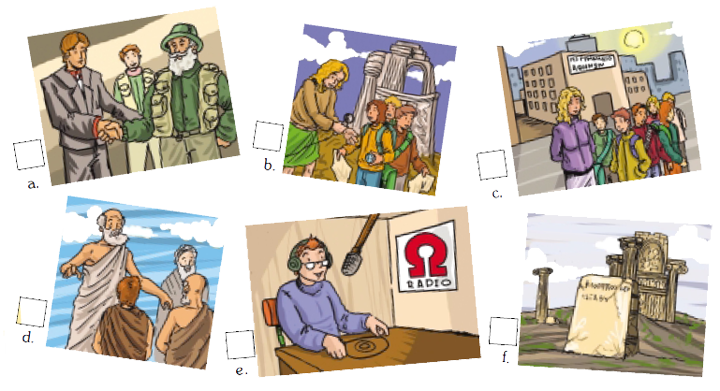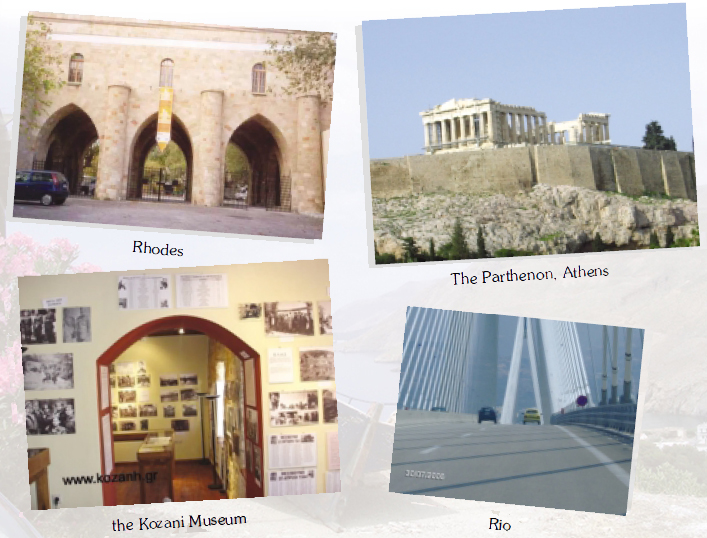Lesson 3


|
Learn by doing!
Present Perfect Simple vs Past Simple
a. Yesterday, students of the 14th Junior High School of Athens visited the Philopappos Hill.
b. Our teachers have given us a questionnaire to complete. c. At the end of the day, all of them wanted to repeat it next year. d. The school has organised this game four times so far.
see Grammar Appendix, page 172

e.g. We learn (how to) by .... / When I ...., I learn about / how to...
|
||||||||||||||

e.g.
The Kazantzakis Museum is in Varvaroi, a place about 20 kilometres to the south of Herakleion. In the museum, there are some of the Cretan writer's personal things, documents, letters, the first Greek editions of his books, translations in 49 languages, photographs, theatrical works and costumes. There is also a collection of press reviews which refer to Kazantzakis and have appeared in Greek and foreign newspapers. Visitors can enjoy learning details about the famous writer's life and career during an audiovisual presentation in five languages: Greek, French, English, German and Dutch. |
Learn by doing!
A Treasure Hunt Game

|
S e l f - A s s e s s m e n t
VOCABULARY LINK
GRAMMAR LINK
|
S e l f - A s s e s s m e n t
CHECK YOUR ANSWERS WITH YOUR PARTNER. THEN LOOK AT THE ANSWER KEY ON PAGE 176
|
S e l f - A s s e s s m e n t
Which is true for you? Put a tick
FOCUS ON SPEAKING SKILLS
Tick
Which other(s) do you want to try in the future?
|